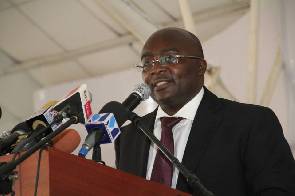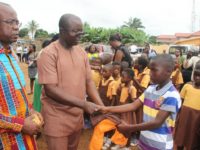
A lecturer at the History and Political Science department of the Kwame Nkrumah University of Science and Technology, Dr. Edward Brenya is of the view that Ghana’s economy at the moment is not wholly good, but that Ghana’s case is not an isolation.
He argues that, after the global crunch, most economies have been suffering. According to him, bigger economies such as the USA and Germany among others have been greatly shattered with many still striving to get back on track.
Putting this aside, Dr Brenya believes that there are other things that the leadership, policymakers, and politicians over the years could have done differently if they had corrected some of their misplaced priorities. “Yes whatever we are experiencing is part of the global experience, but then we have a unique situation which has do to with leadership and the priorities that they pursue,” he stated.
Speaking to Focus FM’s Aaron Atimpe on the areas of unemployment and education, he bemoaned why Ghana should be struggling with unemployment despite the country’s God-given source of employment and food which is “Agriculture”. He says Ghanaians are trying to imitate and compete with countries that Ghana can’t compete with. He also added that Policy makers and politicians from all sides of the political divide could have taken advantage of the advancement in technology to channel the country’s efforts and investments into agriculture to create numerous jobs to reduce the escalating unemployment rate in the country considering the vast lands. “Agriculture was employing about 60% of the workforce. The question we ask ourselves is, why can’t we re-energize and put policies in place to make agriculture the sector it used to be?,” he stressed.
Education wise, he argues that a lot can still be done. The structure of education and some of the courses that are studied were taken at the time of independence to get the nation on its feet, so a lot of secretaries and other helping workers were needed to support the nation recover from colonialism, but now things have changed and Ghana cannot pretend to be an island.
He emphasized the need to revise the educational curricular to tailor education to the needs of Ghana.
Responding to a question on whether student leadership has a bearing on national leadership especially on the canker of corruption, he acceded that it has, but it is not always the case. He says looking at student leaders in the various campuses, it is disheartening the type of embezzlements and corrupt practices they indulge in. He however argued that there are corrupt and non-performing leaders at the national level who have never been student leaders. He was also of the believe that non functionary national institutions of accountability paves the way for people to engage in corrupt practices and get away with impunity. He also believe that the individual demands made by citizens to their leaders make the whole system looks like a contract between the politicians and their constituents or subjects where politicians gather monies to kind of buy votes hence become unaccountable and non-answerable to anyone after getting into power. He opined some of these things as responsible for corruption in Ghana.
He advised Ghanaians to be discerning in making decision going into November 2016 election by assessing the feasibility of policies by various politicians. He entreated Ghanaians not to vote based on any affiliations but based on those that can deliver.





